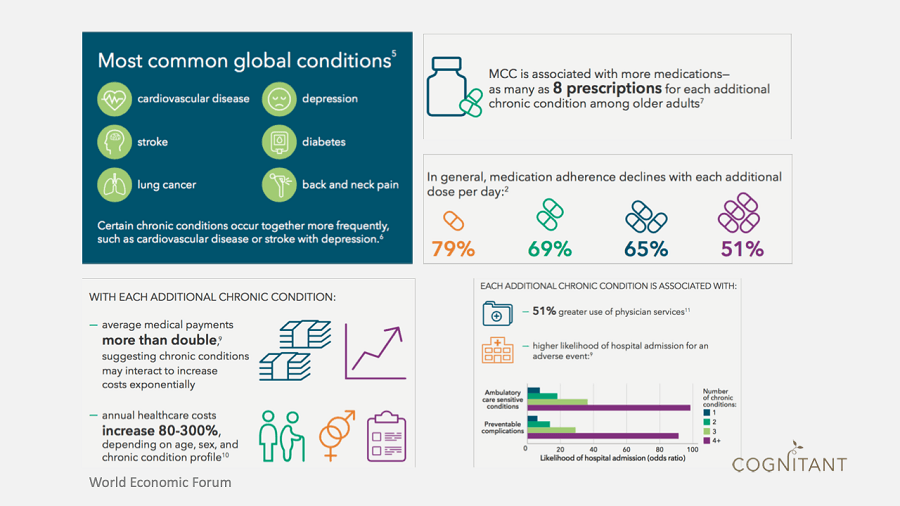
Patients relying on “Dr Google” by exploring websites comprising health misinformation is a dangerous problem, which a new virtual reality (VR) healthcare service is aiming to solve with its 3D content improving knowledge about healthcare.
Healthinote is being launched in response the concern doctors are expressing with regards to the “Dr Google” effects, which they state does more harm than good with 76% of GPs polled in a recent survey opposing the use of online searches for diagnosis.
As a result, more than one-third of NHS doctors say it does more harm than good and advise patients not to use Google when searching for information about health symptoms or potential treatments, in order to avoid errors from misleading sources.
Google also made an improvement to its algorithm in March called “Medic Update, “in order to provide users with the most relevant content out there regarding health, fitness and wellness.
This is having an impact on the rankings of hospital websites and pharma companies with informational medical websites selling medical products.
Organisations with a low E-A-T (expertise, authority and trustworthiness) score observed a drop in their rankings, whereas websites publishing verified and reviewed content following the E-A-T guidelines saw an increase.
Dr Tim Ringrose, CEO of Cognitant, said: “Prescribed immersive health information has the potential to transform the management of long-term chronic illnesses.
“Our services enable patients to better self-manage their condition, understand the reason for their medication and the most effective way to manage their health.
“Cognitant Group helps overstretched NHS resources go further to improve patients’ well-being.”

How will the VR service combat the routine use of Dr Google?
Healthinote will include a thousand NHS UK Health A-Z topics with additional content from collaborating partners and an increasing number of 3D experiences across a range of chronic diseases, such as a rheumatoid arthritis, asthma and diabetes.
Patients will be able to view information recommended or “prescribed” by their doctor, nurse or pharmacist on smartphones and other devices using VR headsets, through immersive content such as VR tutorials providing explanations about health, disease and treatment.
Dr Ringrose said: “Patients have access to an overwhelming volume of information online, but it’s often difficult for people to know what advice they should follow.
“The content supplied by Cognitant Group is immersive and visual, and offers patients information in a format that is accessible and easy to understand.
“This enables patients to manage their health with greater independence.”
Face to face or virtual consultation with clinicians will be available to help patients take more control of their health to enable confidence they are being provided credible information personalised to them.
A recent study by an independent charity National Numeracy, found that 43% of the population do not have the literacy skills, and 61% do not have the numeracy skills to understand typical written health information.
Therefore, Cognitant Group seeks to ensure that all patients, irrespective of their background or any language barriers, can access relevant information to “shape the future of healthcare” by allowing patients to access quality information.
Dr Ringrose said: “Rather than being provided a leaflet, or a doctor explaining the complexities of a particular condition, the patients will have all the information they need at their fingertips on their phones, or on a tablet.
“Research shows that patients trust doctors and healthcare professionals and would like to receive information from them, but it is difficult for doctors to spend time informing and providing them with information.
“Healthinote makes it very easy for doctors and healthcare staff to provide information that patients can view at their convenience and share with their relatives.
“By giving patients better access to health information which is readily available to all and easy to understand, Healthinote will become the first port of call for patients who are looking to find out more information about their illness, or the course of their treatment.”
As the world’s population is growing older and living longer, long-term health conditions on the rise and becoming increasingly prevalent are arthritis, asthma, diabetes, cardiovascular diseases and skin conditions – which are being developed for the first phase of the programme, said Dr Ringrose.

Cognitant is launching programmes to further tackle poor quality publicly-available health information with three global pharmaceutical companies aiming of improve compliance with treatment among patients.
Portsmouth Hospitals NHS Trust director of research and innovation professor Anoop Chauhan said: “There is a huge unmet need in patient education for long term conditions, and the solutions offered by Cognitant Group strengthen the armoury of every clinician that will allow them to improve healthcare through bespoke, digital patient education.
“The idea of prescribing the right education for the right patient using modern, immersive and engaging techniques is a simple idea done well by Cognitant Group.”






